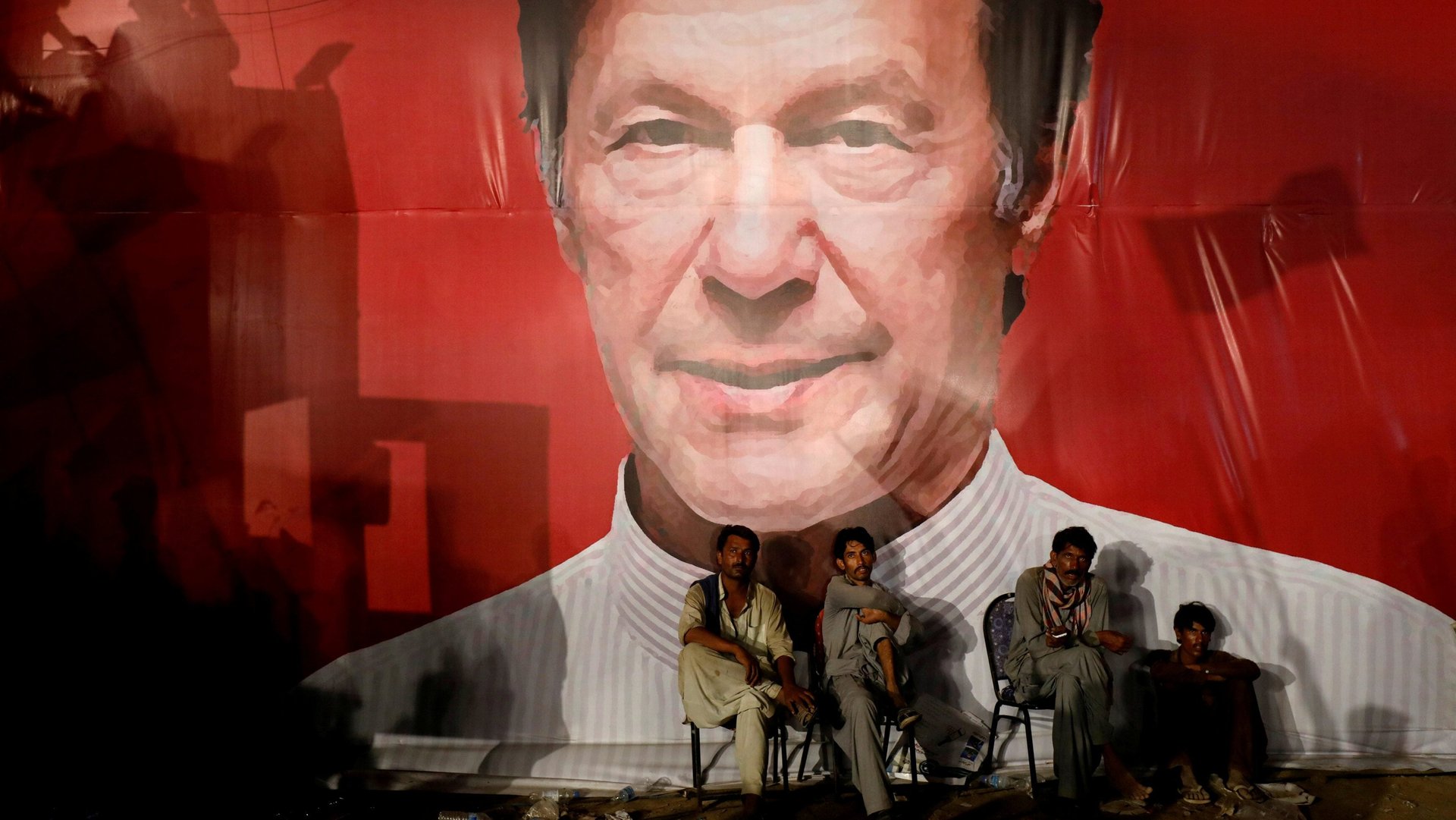Pakistan’s new government is trying to walk back from alarming Chinese debt
China is learning, once again, that its ambitious initiatives across the globe can be hindered by the unpredictability of democratic elections.


China is learning, once again, that its ambitious initiatives across the globe can be hindered by the unpredictability of democratic elections.
First Malaysia’s new leader decided to suspend and cancel billions in dollars in railway and pipeline deals agreed to by the previous administration, which was booted out in elections in May due to public anger over corruption. Now it is the turn of Pakistan, which recently elected Imran Khan, a former cricket star with a populist bent, to say that its trade and investment accords with Beijing need to be reviewed. The country is grappling with a financial crisis that has raised the specter of a default if it can’t secure a bailout.
In an interview with the Financial Times (paywall), Abdul Razak Dawood, an adviser to Khan on trade and investment, said that the previous government had done a “bad job” negotiating on China over the China Pakistan Economic Corridor, or CPEC. “They didn’t do their homework correctly and didn’t negotiate correctly so they gave away a lot… Chinese companies received tax breaks, many breaks and have an undue advantage in Pakistan,” he said. (Dawood has since said some of his comments were taken “out of context.”)
CPEC is a flagship of Beijing’s Belt-and-Road global infrastructure initiative, and over recent years, the country signed on to more than $60 billion in projects with China. Pakistan also has a 2006 trade deal with China.
Khan has set up a nine-member committee to look into all CPEC-related agreements, putting deals on hold while this takes place, the FT reported. In the same piece, Asad Umar, the new Pakistani finance minister, adds that they won’t do what Malaysia’s prime minister Mahathir Mohamad has done—publicly and unilaterally declaring projects on hold—making it clear that Pakistan does not intend to offend Beijing.
China’s Foreign Minister, Wang Yi, visited Islamabad over the weekend, and left declaring that China has not “inflicted a debt burden on Pakistan.” China has also agreed to incorporate more social development projects into CPEC.
Concerns over Chinese financing of projects grew after Sri Lanka, where many billions of dollars of agreements with China were made under former president Mahinda Rajapaksa, ended up seeing his successor Maithripala Sirisena having to hand an entire port to China on a 99-year lease. China also has a 70% equity stake in the port. For many countries involved in China’s Belt and Road Initiative, Sri Lanka is now a cautionary tale: too much debt, too fast, with a worrisome lack in transparency.
Pakistan is among eight countries—as farflung as Djibouti and Montenegro—with worrying levels of debt with China.
US secretary of state Mike Pompeo has called on the IMF to reject the request for a bailout, saying the money shouldn’t go to repay China.(A Pakistan envoy in Hong Kong said last week the crisis the country is facing is not due to repayments to China, but because of rising oil prices that have led foreign reserves to shrink.)
Without a bailout from a multilateral lender, though, Pakistan might find the only solution to its current crisis is more Chinese debt, not less.